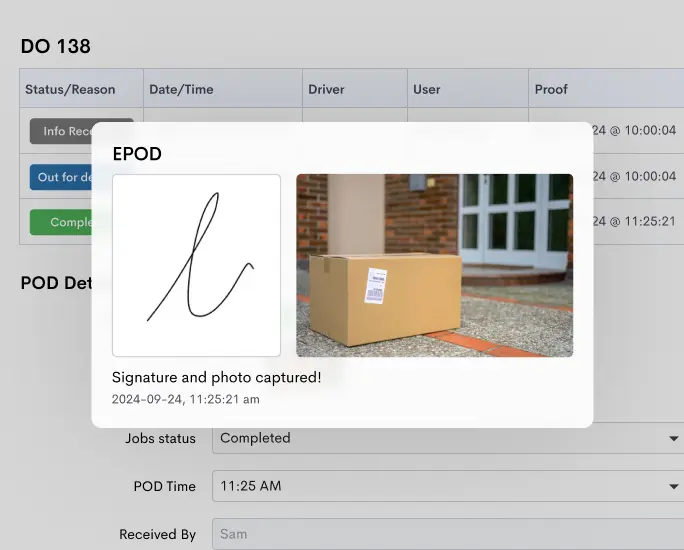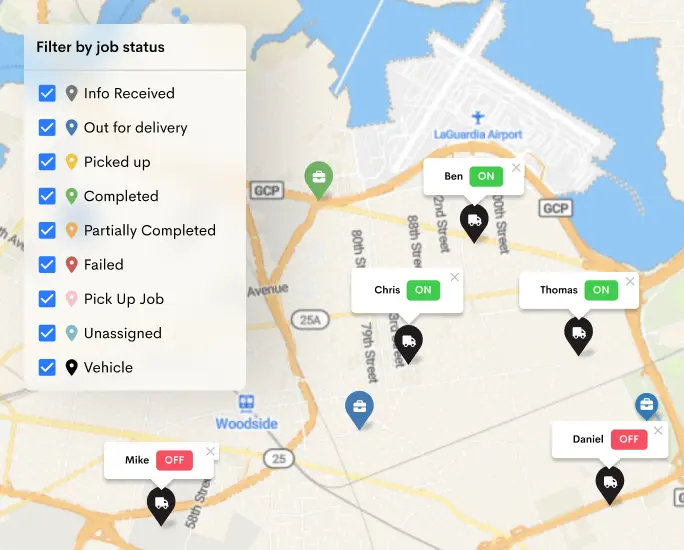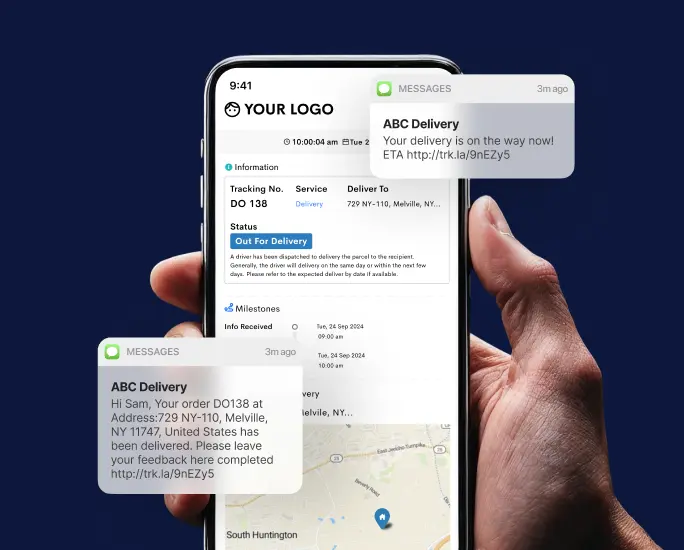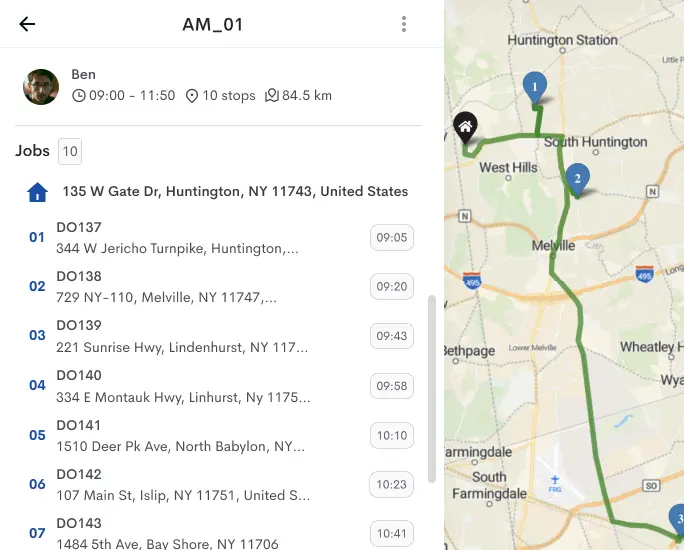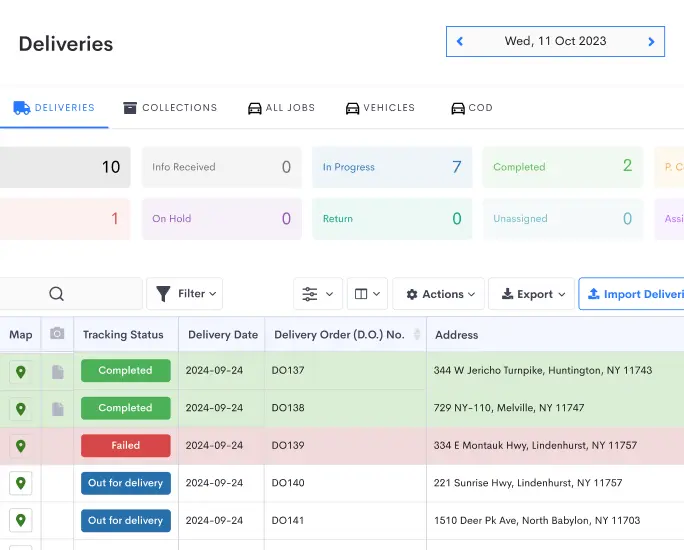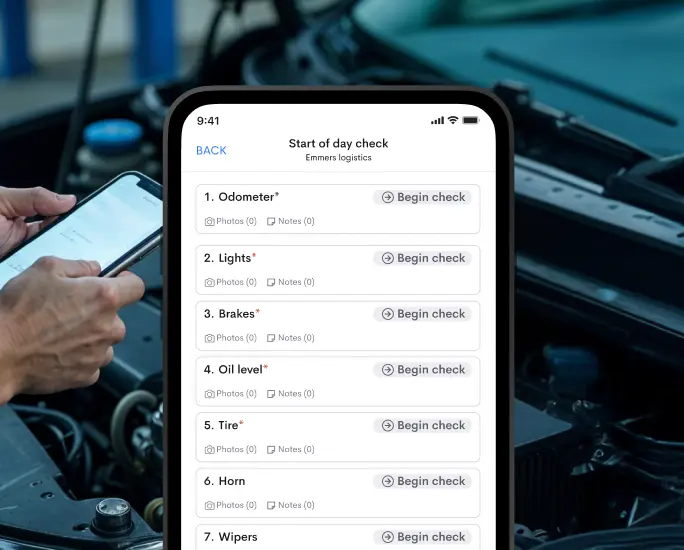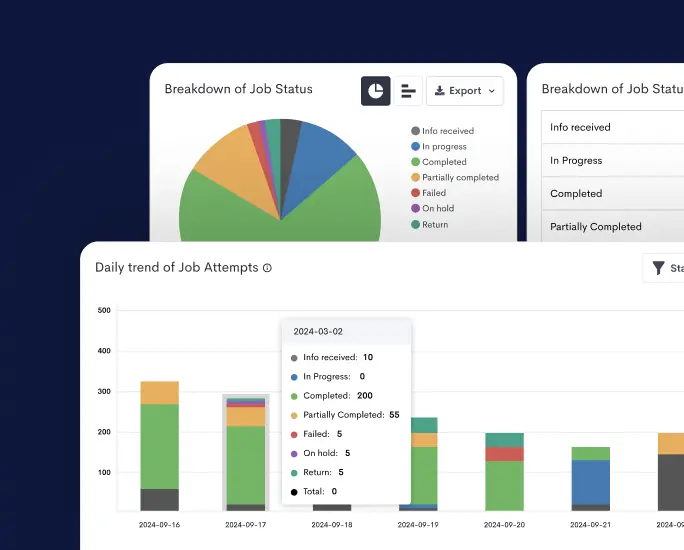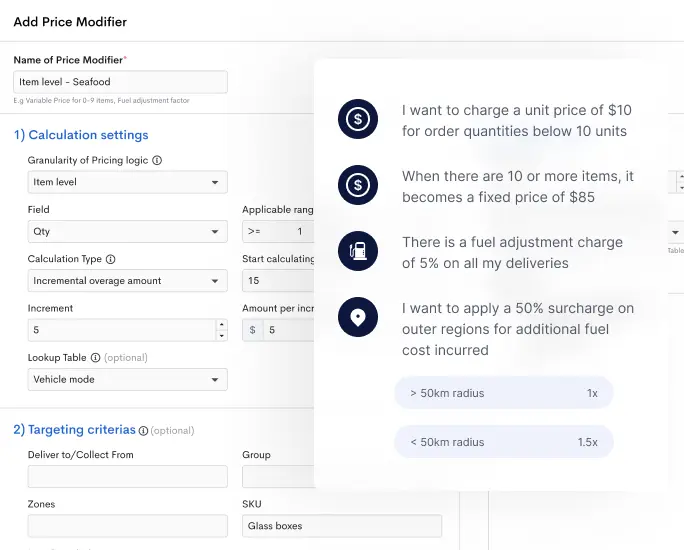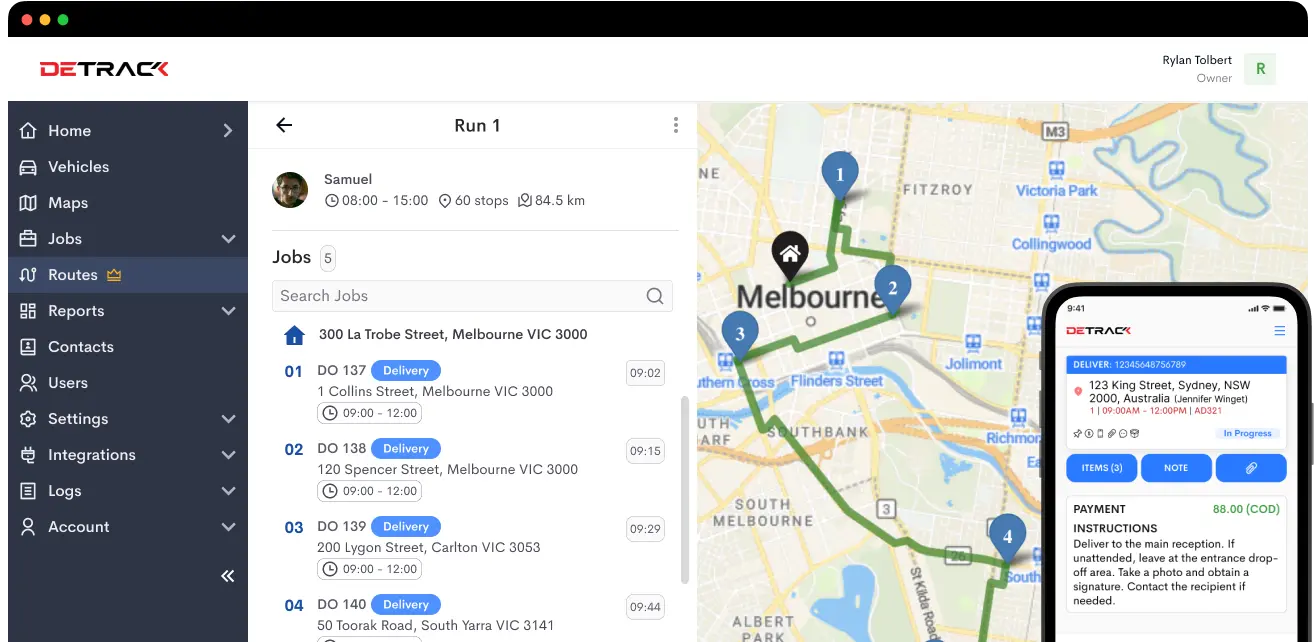Route Management simplifies life. Being a business owner can feel like there’s always something to do. Between managing employees, keeping up with paperwork, and ensuring that your products and services are top-notch, it often seems like there’s not enough time in the day to get everything done.
And if you’re also responsible for managing your company’s routes? Well, that sounds downright daunting. But don’t worry – we’re here to help.
In this post, we’ll cover everything you need to know about route management, from creating schedules and assigning drivers to tracking progress and troubleshooting problems. So read on for tips to help you take the stress out of routing!
What Is Route Management?
Route management is the process of planning, implementing, and monitoring routes for vehicles. This includes creating efficient route schedules, determining the best mode of transportation for each shipment, and tracking vehicles to ensure they stay on schedule.
Route management also involves coordinating with other stakeholders such as suppliers, customers, and third-party logistics providers to ensure that everyone is on the same page and that shipments are delivered on time.
Route management is a critical part of any supply chain and can significantly impact operations’ efficiency and effectiveness. By carefully planning and monitoring routes, businesses can ensure that their products or services are delivered promptly and cost-effectively.
Additionally, route management can help businesses avoid disruptions and delays, leading to customer satisfaction issues.
What Can A Route Management Strategy Do For You?
A route management strategy can help you with a lot of things. This includes the following:
Save on Resources
Route management can help you save on resources by reducing the amount of time your vehicles spend idling. Idling can use up to a gallon of fuel per hour, so even a short period of idling can significantly increase fuel costs.
In addition, idling emits harmful pollutants into the air, contributing to poor air quality and respiratory problems.
By optimizing your routes and minimizing the amount of time your vehicles spend idling, you can help reduce your company’s environmental impact and operating costs. In today’s competitive market, a route management strategy can give you a significant advantage over your rivals.
Manage Multi-Stop Routes
As any business owner knows, efficiency is key to success. When it comes to managing deliveries, this means having a route management strategy in place. A route management strategy can help you plan and optimize your routes, ensuring that delivery operations are conducted efficiently.
By considering traffic patterns, delivery times, and fuel usage, a route management strategy can help you save time and money on your deliveries. In addition, a good route management strategy can help you manage multiple stops.
By planning your routes in advance, you can avoid the frustration of getting lost or making unnecessary detours. As a result, route management is an essential tool for anyone who wants to manage their delivery routes effectively.
Automated Planning With Software
Route management can help you automate planning and optimize your entire operation. Streamlining the process can eliminate wasted time and resources and get your product to market faster.
The first step is to develop a clear understanding of your business goals and objectives. Once you know what you want to achieve, you can begin to create a plan that will help you get there. Next, you need to identify the optimal route for your products.
Once you have a clear understanding of your desired outcomes, you can begin to automate the process.
Route management software, like Detrack, can help you manage your routes more effectively. By automating the process, you can save time and money and get your product to market faster.
Managing Multiple Drivers
Route management is an essential tool for any business that relies on multiple drivers to get its product from point A to point B. By mapping out the most efficient routes and assigning them to specific drivers, businesses can save money on fuel costs and reduce the wear and tear on their vehicles.
In addition, a well-designed route management strategy can help to ensure that deliveries are made on time and that customers are satisfied with the level of service they receive.
By taking the time to develop an effective route management strategy, you can keep your business running smoothly while maximizing the efficiency of your drivers.
Fleet Monitoring/Tracking
Route management can help you keep track of your fleet and ensure that your vehicles are being used efficiently. By mapping out all of your drivers’ routes, you can identify any areas where there is room for improvement.
For example, you may find that one of your drivers is taking a longer route than necessary to reach their destination. Alternatively, you may discover that a particular route is consistently causing delays due to traffic congestion.
By addressing these issues, you can optimize your fleet’s routes and improve your overall efficiency. In addition to reducing costs, a well-planned route management strategy can also help to improve customer satisfaction levels by ensuring that deliveries are made on time.
Vehicle Capacity And Loading Efficiency
A route management strategy can be a very effective way to optimize your fleet’s capacity and loading efficiency. By analyzing your current routes and making some adjustments, you can often find ways to reduce empty miles and improve your overall utilization.
In many cases, this can be achieved without adding any additional vehicles to your fleet. Additionally, route management can help you to better utilize your existing assets and infrastructure, which can further improve your bottom line.
When implemented correctly, route planning can be a powerful tool for improving your business’s efficiency and profitability.
Prevent Lost Deliveries
If you manage a fleet of delivery operations, you know that lost deliveries can cost you time and money. Fortunately, there is a way to reduce the chances of losing a delivery: route management.
By using GPS tracking and data analysis, you can plan the most efficient routes for your drivers. This will minimize the chances of them getting lost, and it will also help you to avoid traffic congestion and other delays.
In addition, route management can help you to track your drivers’ progress and ensure that they are sticking to their scheduled routes. As a result, it is an essential tool for preventing lost deliveries and maintaining efficient delivery operations.
Route Optimization
A route management strategy can help you with route optimization by reducing the number of miles driven, the number of stops made, and the amount of time spent on the road.
By using route management, you can also improve your customer service by ensuring that your drivers are making their deliveries in a timely and efficient manner. In addition, a route management strategy can help you save money on fuel costs by eliminating unnecessary trips and maximizing the use of your vehicles.
By implementing a route management strategy, you can reduce the wear and tear on your vehicles, and you can also save time and money by reducing the number of accidents and traffic violations.
Managing Delays Or Complex Schedules
A route management strategy can help you in managing delays or complex schedules. This is a comprehensive approach that encompasses all the activities required to move freight from origin to destination. The goal is to optimize the use of resources, minimize cost and avoid delays.
Route management starts with an analysis of the current status quo and identifies opportunities for improvement. It then develops a plan to maximize efficiencies and minimize cost. The strategy should be designed to accommodate changes in the marketplace and transportation network.
It should also be flexible enough to adapt to unforeseen events. By using route management tools, you can ensure that your shipments are delivered on time and at the lowest possible cost.
Faster Deliveries = Happier Customers
With a route management strategy in place, you can plan out the most efficient way to deliver your products or services to your customers. This means fewer missed deliveries, and happier customers as a result.
In addition, route planning can help you save time and money by reducing the amount of time your drivers spend on the road.
So if you’re looking to take your business to the next level, consider implementing a route management strategy- it could be the key to success.
GPS Tracking Or Geofencing With Software
There are a lot of things that go into running a successful business. From marketing and sales to product development and customer service, there are a lot of moving parts. And if you’re not careful, it’s easy for things to start slipping through the cracks. That’s why it’s so important to have a solid route management strategy in place.
With GPS tracking or geofencing with software, you can keep track of your fleet in real-time and make sure that everyone is where they’re supposed to be. This can help you avoid missing sales calls or deliveries, and it can help you keep your customers happy.
GPS tracking can also help you monitor your employees’ driving habits and make sure that they’re following the rules of the road. In short, route management can help you save time, money, and a whole lot of headaches.
Real-Time Reports
By providing real-time reports, a route management tool can help you keep track of your vehicles and ensure that they are on schedule.
This information can be used to make changes to your routes if necessary, and it can also help you identify any potential problems with your vehicles or drivers. In addition, route planning can help you save money by reducing fuel costs and improving the efficiency of your operations.
By using a route management strategy, you can ensure that your business is running as smoothly and efficiently as possible.
Conclusion
As a business owner, it’s important to understand the nuances of route management in order to make the most efficient use of your time and resources. By taking the time to map out your routes, consider the delivery frequency, and optimize for time and distance, you can ensure that your business is running as efficiently as possible.
In today’s competitive marketplace, route management can be the difference between success and failure.
Are you looking for route management software? Give Detrack a try. Our software is designed to help you optimize your routes and save time and money. Request a demo today.





